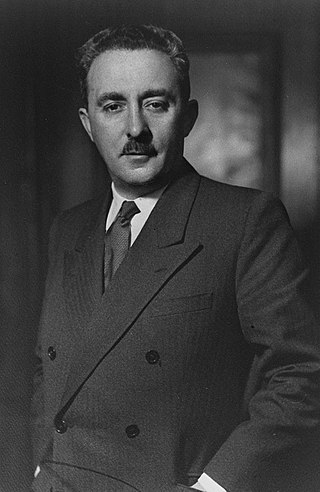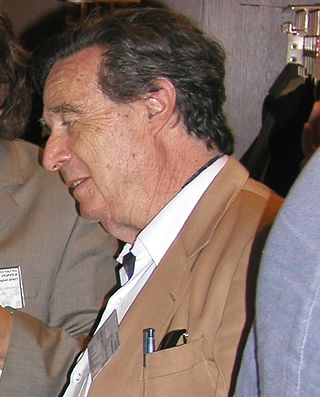
Haifa is the third-largest city in Israel—after Jerusalem and Tel Aviv—with a population of 290,306 in 2022. The city of Haifa forms part of the Haifa metropolitan area, the third-most populous metropolitan area in Israel. It is home to the Baháʼí Faith's Baháʼí World Centre, and is a UNESCO World Heritage Site and a destination for Baháʼí pilgrimage.

Yad Vashem is Israel's official memorial to the victims of the Holocaust. It is dedicated to preserving the memory of the Jews who were murdered; echoing the stories of the survivors; honoring Jews who fought against their Nazi oppressors and gentiles who selflessly aided Jews in need; and researching the phenomenon of the Holocaust in particular and genocide in general, with the aim of avoiding such events in the future. Yad Vashem's vision, as stated on its website, is: "To lead the documentation, research, education and commemoration of the Holocaust, and to convey the chronicles of this singular Jewish and human event to every person in Israel, to the Jewish people, and to every significant and relevant audience worldwide."

Moshe Sharett was the second prime minister of Israel and the country’s first foreign minister. He signed the Israeli Declaration of Independence and was a principal negotiator in the cease-fire agreements that concluded the 1948 War of Independence. Beginning in 1933, he headed the political department of the Jewish Agency. He also founded the Jewish Brigade, which fought with the British Army during World War II.

Martin Buber was an Austrian-Israeli philosopher best known for his philosophy of dialogue, a form of existentialism centered on the distinction between the I–Thou relationship and the I–It relationship. Born in Vienna, Buber came from a family of observant Jews, but broke with Jewish custom to pursue secular studies in philosophy. He produced writings about Zionism and worked with various bodies within the Zionist movement extensively over a nearly 50-year period spanning his time in Europe and the Near East. In 1923, Buber wrote his famous essay on existence, Ich und Du, and in 1925 he began translating the Hebrew Bible into the German language.

The Hebrew University of Jerusalem is an Israeli public research university based in Jerusalem. Co-founded by Albert Einstein and Chaim Weizmann in July 1918, the public university officially opened on 1 April 1925. It is the second-oldest Israeli university, having been founded 30 years before the establishment of the State of Israel but six years after the older Technion university. The HUJI has three campuses in Jerusalem, one in Rehovot, one in Rishon LeZion and one in Eilat. Until 2023, the world's largest library for Jewish studies—the National Library of Israel—was located on its Edmond J. Safra campus in the Givat Ram neighbourhood of Jerusalem.

Gershom Scholem was a German-born Israeli philosopher and historian. Widely regarded as the founder of modern academic study of the Kabbalah, Scholem was appointed the first professor of Jewish mysticism at Hebrew University of Jerusalem.

The Herzliya Hebrew Gymnasium, originally known as HaGymnasia HaIvrit is a historic high school in Tel Aviv, Israel.

Shmuel Noah Eisenstadt was an Israeli sociologist and writer. In 1959 he was appointed to a teaching post in the sociology department of the Hebrew University in Jerusalem. From 1990 until his death in September 2010 he was professor emeritus. He held countless guest professorships, at the University of Chicago, Harvard University, the University of Zurich, the University of Vienna, the University of Bern, Stanford and the University of Heidelberg, among others. Eisenstadt received a number of prizes, including the Balzan Prize and the Max-Planck research prize. He was also the 2006 winner of the Holberg International Memorial Prize. He was a member of many academies, including the American Academy of Arts and Sciences and the Advisory Editors Council of the Social Evolution & History Journal. His daughter Irit Meir was a noted scholar of Israeli sign language.

Joseph Agassi was an Israeli academic with contributions in logic, scientific method, and philosophy. He studied under Karl Popper and taught at the London School of Economics.

Haim Moshe, born 20 September 1955 is an Israeli singer whose musical style has crossed over from Yemenite and Mediterranean "ethnic" music to include mainstream Israeli and western pop elements. He has helped Mizrahi music achieve wide popularity both in Israel and in Arab countries.
Operation Ben-Ami was one of the last operations launched by the Haganah before the end of the British Mandate. The first phase of this operation was the capture of Acre. A week later four villages east and north of Acre were captured. The Carmeli Brigade of the Haganah allegedly used biological warfare in the battle for Acre in May 1948.

The common definition of Zionism was principally the endorsement of the Jewish people to establish a Jewish national home in Palestine, secondarily the claim that due to a lack of self-determination, this territory must be re-established as a Jewish state. Historically, the establishment of a Jewish state has been understood in the Zionist mainstream as establishing and maintaining a Jewish majority. Zionism was produced by various philosophers representing different approaches concerning the objective and path that Zionism should follow. A "Zionist consensus" commonly refers to an ideological umbrella typically attributed to two main factors: a shared tragic history, and the common threat posed by Israel's neighboring enemies.
Ihud was a small binationalist Zionist political party founded by Judah Leon Magnes, Martin Buber, Ernst Simon and Henrietta Szold, former supporters of Brit Shalom, in 1942 as a binational response to the Biltmore Conference, which made the establishment of a Jewish Commonwealth in Palestine the policy of the Zionist movement. Other prominent members were David Werner Senator, Moshe Smilansky, agronomist Haim Margaliot-Kalvarisky (1868–1947), and Judge Joseph Moshe Valero.

Sir Moses Haim Montefiore, 1st Baronet, was a British financier and banker, activist, philanthropist and Sheriff of London. Born to an Italian Sephardic Jewish family based in London, after he achieved success, he donated large sums of money to promote industry, business, economic development, education and health among the Jewish community in the Levant. He founded Mishkenot Sha'ananim in 1860, the first Jewish settlement outside the Old City of Jerusalem.

Limor Shreibman-Sharir is an Israeli writer, physician and beauty pageant titleholder. she was crowned Miss Israel 1973 and represented her country at Miss Universe 1973 where she placed 4th runner-up.

Michal Govrin is an Israeli author, poet and theater director.

Moshe Yegar is an Israeli retired diplomat, historian, and scholar. He is known for his expertise on Islam in Southeast Asia and the history of Israel’s diplomatic service. Throughout his career, Yegar held various diplomatic positions worldwide and authored numerous works on related topics.
Judith Buber Agassi was a German-born Israeli social scientist, who wrote about women, work and the experience of those imprisoned in Ravensbrück concentration camp. She also edited the work of her mother Margarete Buber-Neumann and her grandfather Martin Buber.
The Jewish Cause: An Introduction to a Different Israeli History is the second book by Moshe Berent. The book was published in Hebrew in 2019 in Jerusalem in a series of books "Interpretation and Culture" in Carmel Publishing House, edited by Prof. Avi Sagi. The book expands on the themes of Berent's earlier book "A people like all the peoples - towards the establishment of an Israeli republic" in an attempt to answer the questions regarding the Labor leadership of the Zionist movement:














